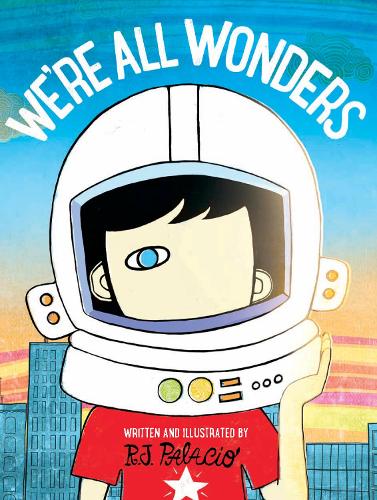Year 3 No Outsiders lesson plan
|
Text: We’re all wonders by RJ Palacio
lesson plan by Andrew Moffat equalitiesprimary.com
|
|
Learning intention: To use my pupil
voice
|
|
Success criteria: I know everyone
has differences, I know what unique means, I know how people can feel hurt, I
know what a bystander is, I know what to do if I see someone being unkind
|
|
Starter: What does unique mean? How can a
person be unique? What does bystander mean? (when someone sees something they
know is wrong but chooses not to say anything or do anything) In what
situation might someone be a bystander?
Tell
the children, there is one part of the story where we see children act as
bystanders; at the end of the lesson you will ask for children to identify
that part.
|
|
Main: Read “We are all wonders”. Auggie says he
is not an ordinary kid; in what ways is Auggie ordinary and how is Auggie
different from other kids? Why are Auggie’s feelings hurt? Why does Auggie
say he is a wonder? Why does Auggie say he wants people to change the way
they see? Look at the page where the boy holds out a ball to Auggie; what’s
changed for Auggie on this page? Which part of the book shows people being
bystanders? What needs to happen here?
|
|
Role play: We are going to
practice using our pupil voice and choosing not to be bystanders. In this
story Auggie is called names for being different and everyone acts like a
bystander because no one uses their pupil voice to speak up for him. Ask for
a volunteer to be Auggie and give out cards to every other child. All the
cards are blank except for a small number which have a star on them. Explain
to the children that we are going to role-play the part of the book where
children choose to be bystanders but some of us are going to practise
choosing not to be bystanders. If your card is blank, for this role play you
need to remain a bystander but if you have a star you need to choose to use
your pupil voice and speak up for Auggie. Tell the class you cannot ask
anyone to pretend to be unkind towards Auggie so you will take that role. You
are going to tell Auggie he is different and doesn’t belong here but then say
you want to hear people who have stars speak up, use their pupil voice and
defend Auggie (you might want to
rehearse some ideas first). Repeat the role play with different children
being Auggie and different children speaking up. For the last one don’t give
out cards and say you want everyone to speak up. Praise the class for not
being bystanders and using their pupil voice.
|
|
Activity: Children draw “Don’t be a
bystander” posters showing different responses to bullying.
|
|
Plenary:
In
the story when children call Auggie names why doesn’t Auggie use his pupil
voice and speak up? Ask children who role played being Auggie how they felt
when you said they were different and didn’t belong, and how they felt when
children used their pupil voice. Discuss what children can do if they see
bullying (tell an adult, remove the child: ensure children have strategies)
|
|
Afl questions: Why might some
children feel like outsiders on our playground? What can we do in our
school to make sure no one feels like an outsider?
|
For more No Outsiders lesson plans see "No Outsiders in our school: Teaching the Equality Act in primary schools" by Andrew Moffat
For No Outsiders parent / child workshops see "Reclaiming radical ideas in schools: Preparing young children for life in modern Britain" by Andrew Moffat

This is really good for teaching a lesson
ReplyDelete